The magic happens when you uncover SEO opportunities you may not have otherwise seen, or ever even considered!
The idea behind this research is to analyze the top ranking pages of your competitors – which ones are the most popular? What keywords are they using? How do they rank? What SEO tactics do they use?
Once you know these things, you can use them to improve your own website and rank higher than them.
What is SEO Competitor Research?
SEO competitor research is a process that allows you to assess how well your competitors are doing in organic search results for key terms related to their business. This information can be used to improve your own website’s performance in organic search results by comparing yourself against your competitors and their strategies.
Why is Competitor Research Important for SEO?
Competitor research plays a pivotal role in the world of SEO, and here’s why it holds immense significance.
When it comes to carving a successful SEO strategy, knowledge is power. Competitor research provides invaluable insights into your rivals’ strategies, strengths, and weaknesses. By understanding what is working for them, you gain a competitive edge, enabling you to optimize your own website and climb the search engine rankings.
Knowing what your competitors are doing right can help you identify new opportunities and refine your approach. Let’s dive deeper into the key reasons why competitor research is vital for SEO success:
1. Discover Untapped Opportunities:
By analyzing your competitors, you can uncover keywords they are ranking for that you may have missed. This insight enables you to fine-tune your keyword targeting and attract organic traffic that you might have otherwise overlooked.
2.Learn from the Best:
Competitor research allows you to gain strategic insights from successful websites in your niche. Studying their content marketing strategies, link building techniques, and social media presence offers valuable lessons. You can replicate their successes, avoid their failures, and refine your own approach accordingly.
3. Benchmark Your Performance:
Analyzing your competitors’ performance metrics alongside your own helps you gauge your relative strengths and weaknesses. This assessment serves as a benchmark for setting realistic goals and tracking your progress over time. It enables you to understand where you stand in comparison to your competitors and identify areas for improvement.
Who are SEO Competitors?
When it comes to SEO, your competitors extend beyond your direct business rivals. SEO competitors are those websites that compete with you for search engine visibility and organic traffic.
Let’s explore the two types of SEO competitors:
1. Direct Competitors:
These are websites that offer similar products or services and target the same audience as your business. They often appear in search engine results pages (SERPs) for the same keywords you are targeting. Analyzing their strategies can provide valuable insights into what is working in your industry.
2. Indirect Competitors:
Indirect competitors may not offer the same products or services as your business, but they target the same audience or niche.
Although they are not direct competitors, they still compete for the attention of your potential customers. Understanding their strategies helps you refine your own SEO efforts to stay relevant and visible within your target market.
How Do You Research Competitors on a Website?
When you’re running an SEO competitive analysis, your goal is to look at the top ranking pages for a given keyword and determine why they’re ranked where they are. You want to see what’s working for them and what you can emulate in your own content.
There aren’t any hard or fast rules to running an SEO competitor analysis, but here are a few steps you can add to your process:
1. Find Your Competitors
Start by making a list of who you consider your competitors. Try to focus on websites that rank highly or often for your main target keywords and any significant additional keywords.
In this case, we want to rank higher for a keyword remittance company in Singapore. To get started, you’re going to need to make a list of your competitors. To make this process easier, we recommend looking at the sites that show up on page 1 of Google when you search for that keyword you can use Keyword research tools like Ubersuggest or other keyword research tool.
In this case, we will use CYS as our website and we want to get a higher keyword ranking for remittance company in Singapore. Then we search remittance companies in singapore using Keyword Research by Ubersuggest
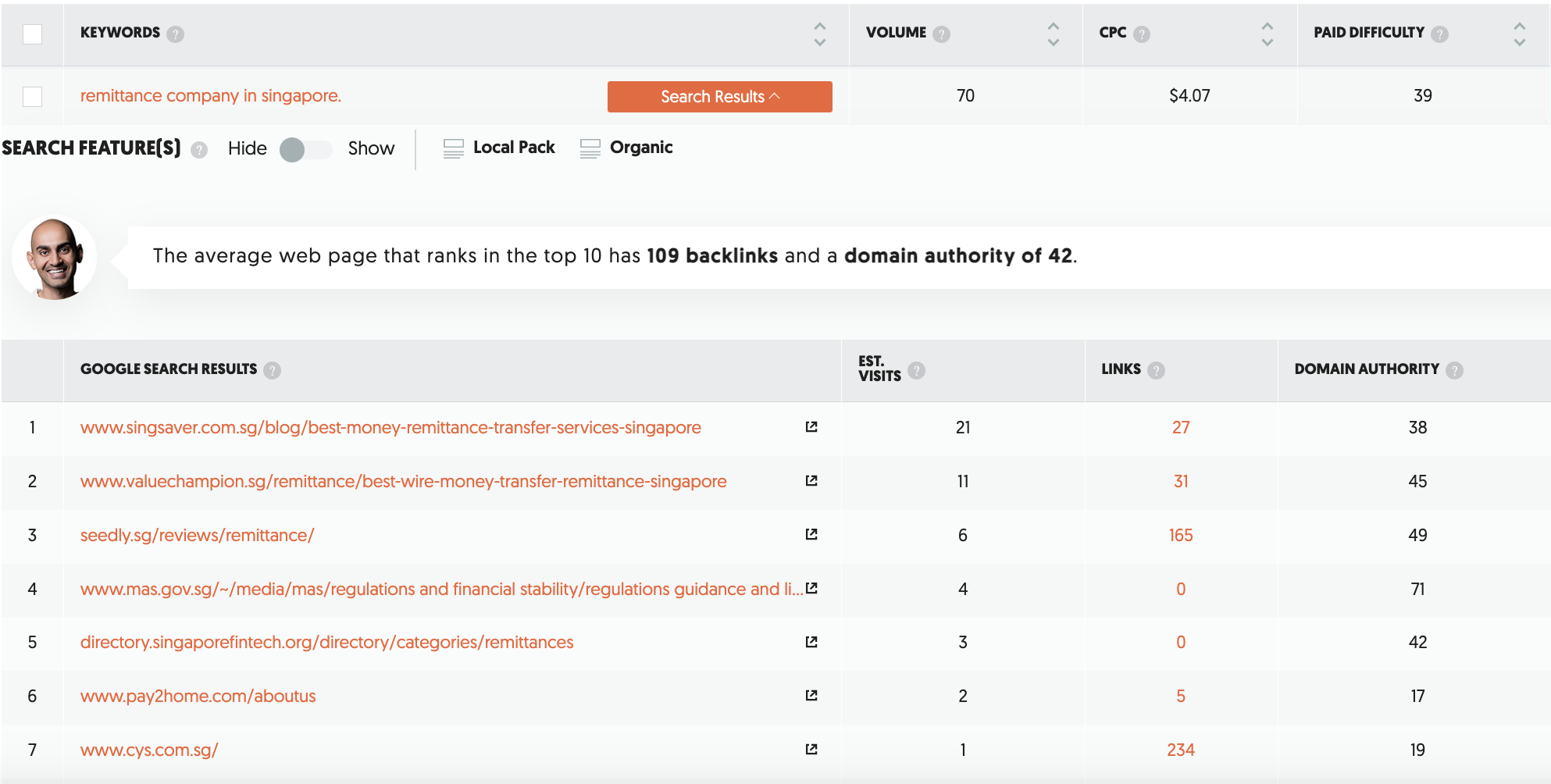
From the result we can list CYS competitors,in this case, we can list pay2home.com as a competitor. And we are not competing with the rest, because they are reviews and listing websites.
2. Analyze Your Competitors’ Top Pages
When you’re looking at your competitors, it’s important to analyze their top pages.
This will give you a better idea of what your audience is looking for, and help you create content that will resonate with them.
Here are some things to look for:
– Which pages rank for the most keywords?
– Which pages have the most traffic?
– Which pages have the highest percentage of their overall traffic?
For CYS competitor pay2home.com, we can see which pages have the most traffic and keyword. You can use Ubersuggest Traffic Overview to check the top pages of competitors.
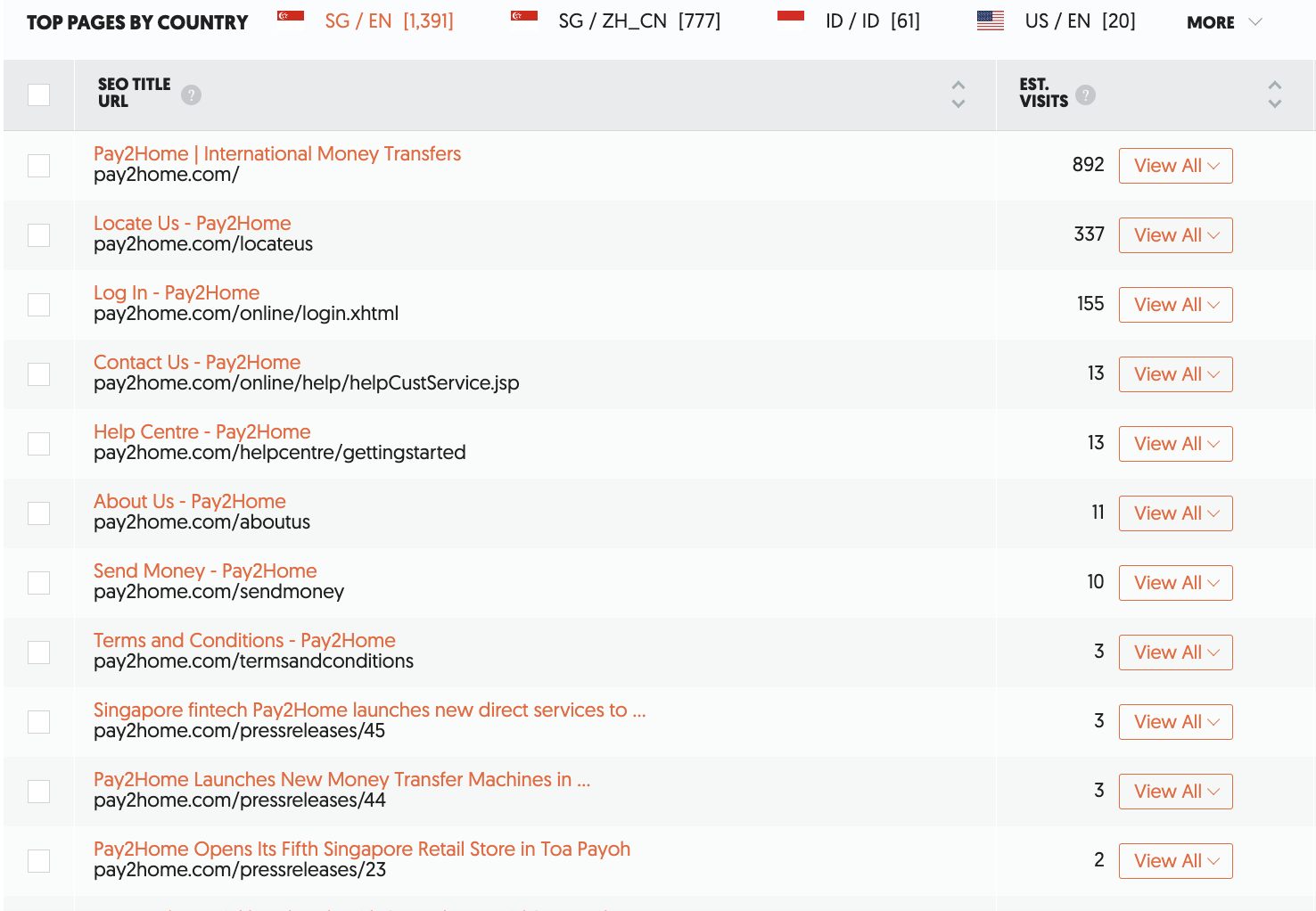
3. Finding Keyword Gap
If you want to improve your rankings, you should take a look at the keywords that you are currently ranking for, but not as well as some of your competitors.
You should pay special attention to keywords where you are only a position or two behind your primary competitor.
You should also pay attention to keywords where all of your competitors are ranking, but you’re not.
– Why are they ranking and not you?
– Do they have better supplementary content for those particular keywords?
– Do they have an exceptionally higher number of backlinks to those specific pages that are helping them rank higher?
– What do you need to do on your site to target those individual keywords?
You can use Ubersuggest similar website to check your keyword gaps with your competitor.
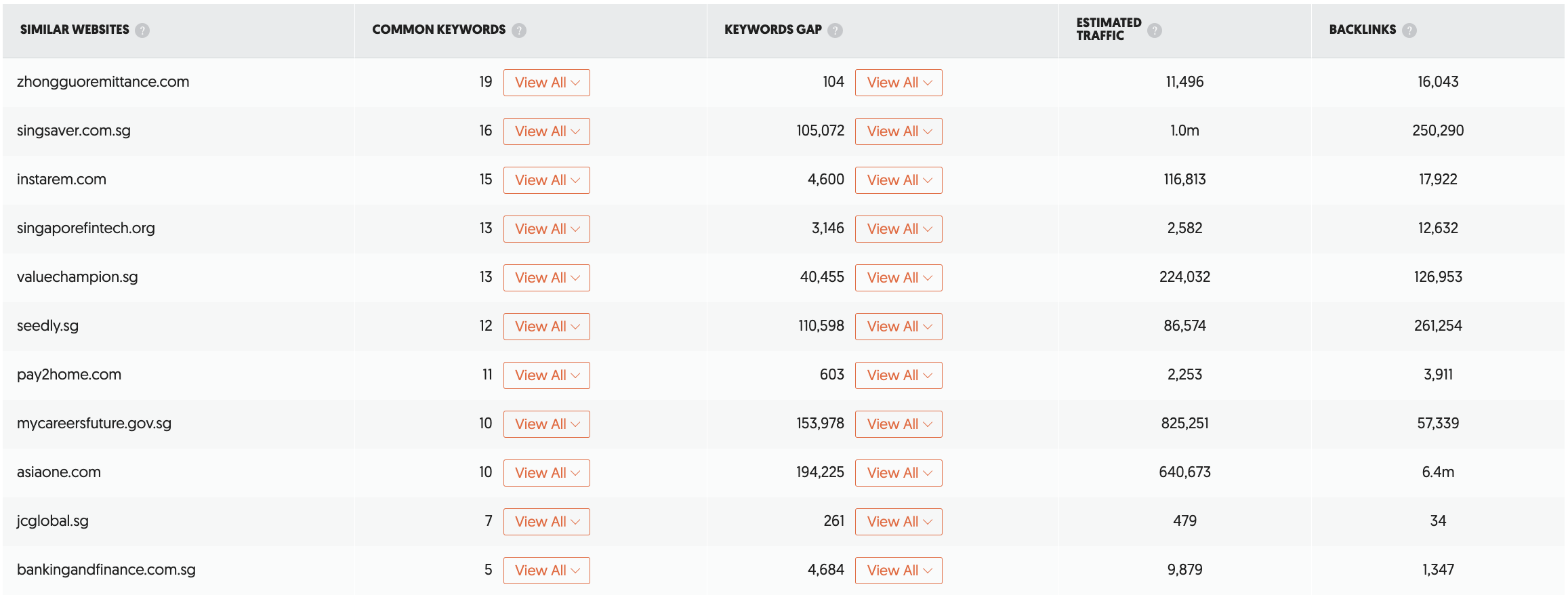
4. Identify Strengths and Weaknesses
Identify the strong and weak points of each of your competitors by considering these factors:
SEO On Page
Your main goal here is to identify any on-page elements that are keeping your competitors from ranking well. Look for things like duplicate content (especially inbound links), keyword stuffing, missing ALT tags and more. You can use tools such as Ubersuggest Website Audit. You will see suggestions on what SEO On Page Issues need to fix.

Read this article if you want to improve your SEO On Page, On Page SEO Guide 2022
SEO Off Page
In this area, you want to focus on link building and social signals. Which sites are linking to your competitors? How do they compare with the number of links coming in from other sites? Are there any opportunities to get backlinks from high-authority pages? Is there any potential for guest posting?
Backlinks play a crucial role in SEO success. Explore your competitors’ backlink profiles to uncover high-quality websites that are linking to them.
You can use ubersuggest Backlink Opportunity to see the websites backlinks that link to your competitors but not to you.
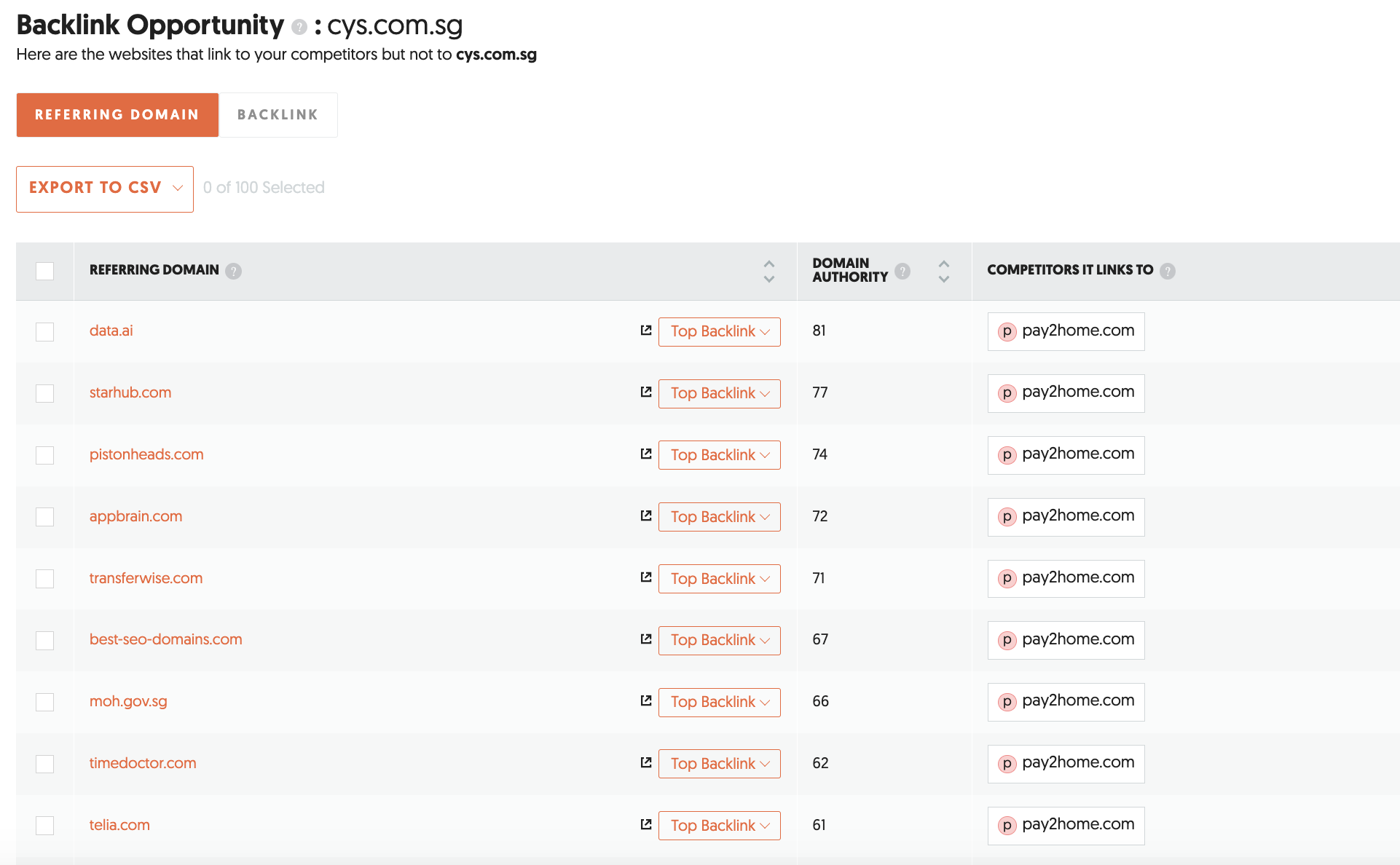
Read this article to know SEO Off Page Best Practice
Technical SEO
Do they have any technical issues on their site hindering their search performance? Do they have duplicate content issues? Are they using 301 redirects properly? Are they using schema markup? These are just a few examples, but there are many more technical factors to consider when performing a competitor analysis.
You can check your competitor’s website speed using GTMetrix.And also check your website speed.
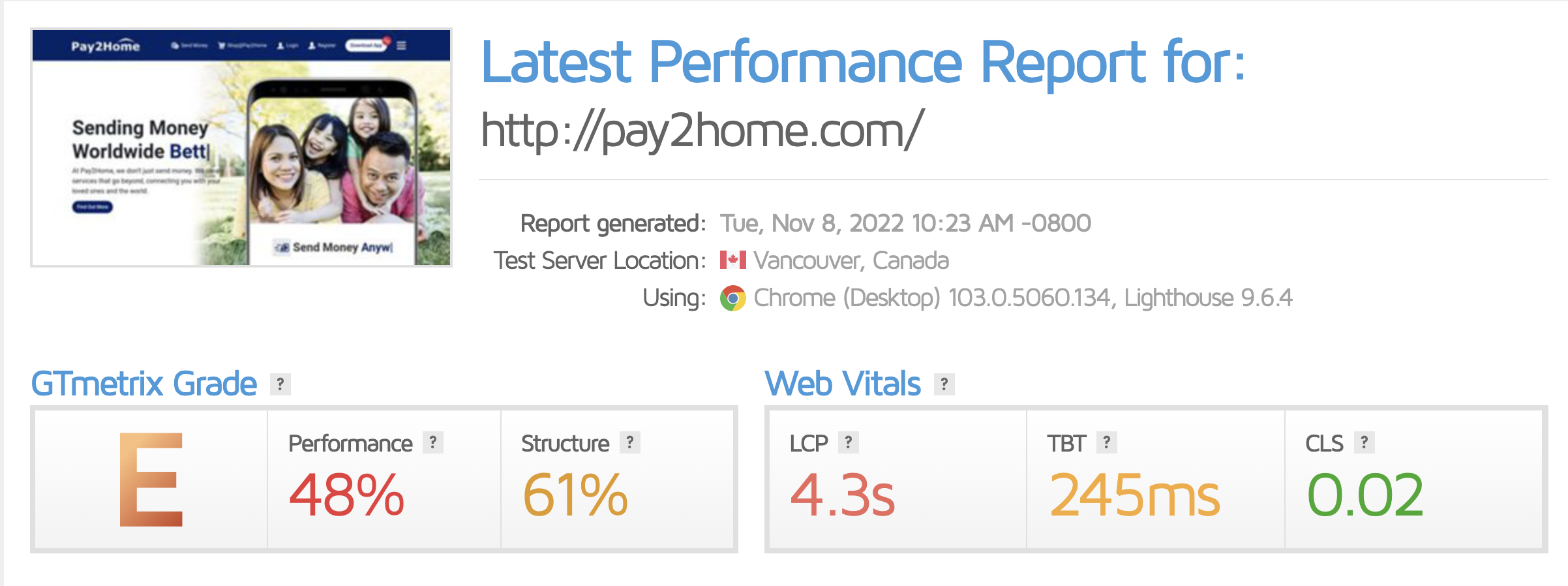
5. Analyze On a Page by Page Basis and Take Action
Once you have identified specific keywords and search results, you’ll need to start looking on a page-by-page basis, comparing your pages to the competitors’ pages that are outranking you.
Comparing pages will help you identify individual issues on each page resulting in your competitors ranking higher than you. It will also help you understand what you should be doing better on those particular pages.
For example, your competitor has an optimized title tag that matches the keyword, while yours has an optimized title tag but it doesn’t include the keyword. Or maybe they have a meta description that includes a call to action, but yours does not.
The point is that there are many different reasons why your competitor may be outranking you for a specific keyword.
But by looking at their competitors and seeing what they are doing better than you are on each individual page of theirs, you’ll gain insight into ways in which to improve your own pages so that they rank higher for that particular keyword or phrase as well!

Conclusion
While a true competitor analysis involves looking at your competitors’ search engine data, as well as their backlinks, there are a few easy ways to get your own list together without digging through all of that SEO data.
Keep an eye on the same competitors every month while they are showing signs of improvement. See if they are growing in page rank and traffic very quickly, or if they had a spike in popularity that is now dropping off. The more options you have, the easier it will be to discover new opportunities for your business. If you need help, Neu Entity offers SEO Services to increase your rankings and organic traffic.
Related Articles
Let’s Talk!
If what you see here is relevant for you and can help you grow your business or organisation, we’d love to discuss further with you. Drop us a message or schedule an appointment with us.


